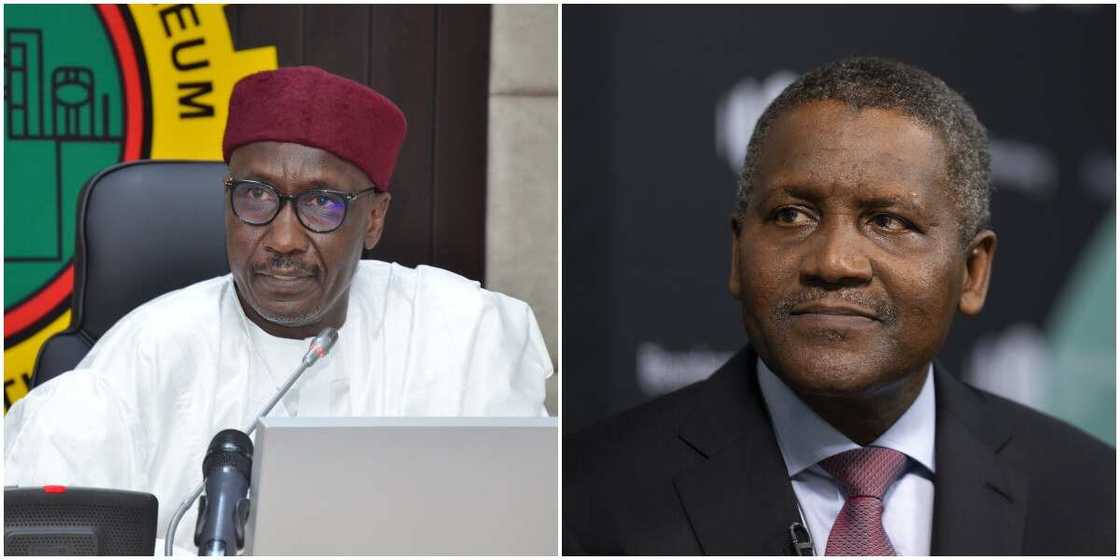NNPC Ask Aliko Dangote to Part with 20% Stake in His Refinery Business
- Dangote Refinery and the Nigerian National Petroleum Corporation are in talks for a 20% stake
- The corporation owned by the Nigerian government want a minority stake in the refiner set to commence operation in 2022
- Aliko Dangote's refiner is worth $15 billion and will produce 650,000 barrels per day
The Nigerian National Petroleum Corporation (NNPC) want Aliko Dangote to part with some stake in his refinery business, as the government corporation plans to strategically partner with private investors.
NNPC is in talks with the billionaire and his team to take up a minority stake in the Dangote Refinery, which is scheduled for operation in 2022, after various setbacks caused by COVID-19 pandemic.
The minority stake is weighed at 20% in the $15 billion worth refinery that will be producing 650,000 barrels per day once it commences operation. The refiner has a single day output of about 50 million litres of petrol and 15 million litres of diesel a day.
Mustapha Yakubu, the NNPC Chief Operating Officer for Refining and Petrochemicals, said that the corporation want to have a piece of the refinery through collaboration:
“At the moment, we have Dangote Refinery, which is the 650,000 capacity barrels per day plus a mini 80,000 tonnes per annum petrochemical plant.
“What are we doing there? I can tell you today that we are seeking to have a 20 per cent minority stake in Dangote Refinery as part of our collaboration and you know that there’s a huge quantity of crude for that refinery."

Source: UGC
The NNPC has its own refineries: Port Harcourt Refining Company, Warri Refinery, Kaduna Refining and Petrochemicals, Warri Refining & Petrochemicals Company - all of which have been in deplorable condition for years.
Meanwhile, Legit.ng had previously reported that Transmission Company of Nigeria will be placed on sale by the Bureau of Public Enterprise in a bid to completely reform the power sector.
The bureau said the transmission company is the only segment of the industry that hasn't been reformed or privatised since private investors were allowed to acquire generating and distribution companies in 2013.
The company is expected to be broken down into components, all of which will be placed on sale for investors to present their acquisition interest.
Source: Legit.ng




